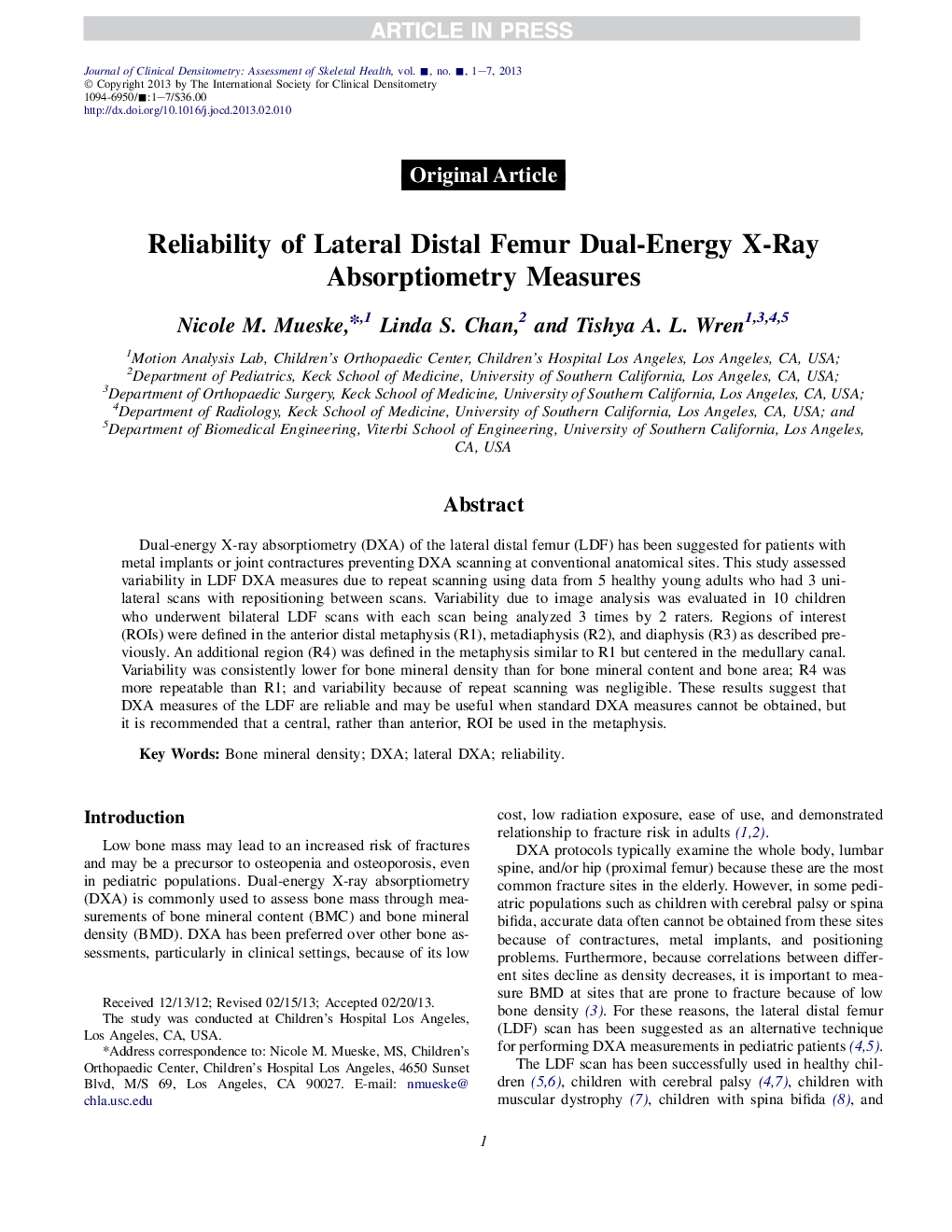| Article ID | Journal | Published Year | Pages | File Type |
|---|---|---|---|---|
| 10168119 | Journal of Clinical Densitometry | 2014 | 7 Pages |
Abstract
Dual-energy X-ray absorptiometry (DXA) of the lateral distal femur (LDF) has been suggested for patients with metal implants or joint contractures preventing DXA scanning at conventional anatomical sites. This study assessed variability in LDF DXA measures due to repeat scanning using data from 5 healthy young adults who had 3 unilateral scans with repositioning between scans. Variability due to image analysis was evaluated in 10 children who underwent bilateral LDF scans with each scan being analyzed 3 times by 2 raters. Regions of interest (ROIs) were defined in the anterior distal metaphysis (R1), metadiaphysis (R2), and diaphysis (R3) as described previously. An additional region (R4) was defined in the metaphysis similar to R1 but centered in the medullary canal. Variability was consistently lower for bone mineral density than for bone mineral content and bone area; R4 was more repeatable than R1; and variability because of repeat scanning was negligible. These results suggest that DXA measures of the LDF are reliable and may be useful when standard DXA measures cannot be obtained, but it is recommended that a central, rather than anterior, ROI be used in the metaphysis.
Keywords
Related Topics
Health Sciences
Medicine and Dentistry
Endocrinology, Diabetes and Metabolism
Authors
Nicole M. Mueske, Linda S. Chan, Tishya A.L. Wren,
